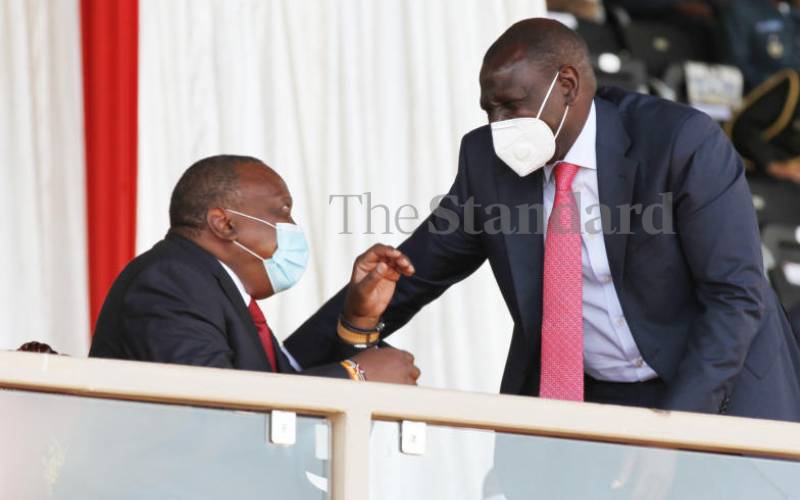×
The Standard e-Paper
Kenya’s Boldest Voice

President Uhuru Kenyatta and DP William Ruto share a light moment at Nyayo National Stadium, Nairobi on December 12, 2020. [Elvis Ogina, Standard]
The by-election in Kiambaa where the United Democratic Alliance won on Friday has provided vital lessons for both President Uhuru Kenyatta and Deputy President William Ruto.